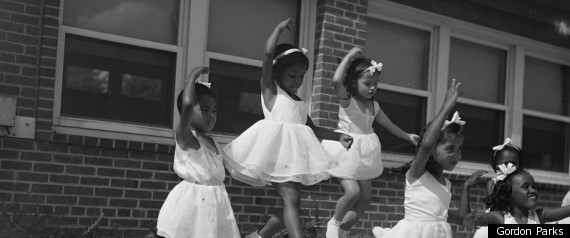In much of my feminist writing today, I am constantly reminded that some of the earliest books on topics like gender inequality, beauty standards and the racial divide could have been written today. Go read The Beauty Myth, which was published 23 years ago, and you'll see what I mean.
Some of this familiarity gives me hope that we're still focused on what matters. But every now and then I'll come across something that just feels deflating. This blog did that for me today.
In it, the author talks about the ways systematic poverty in Washington, DC is one of the greatest contributing factors to children in that region developing chronic lung conditions, such as asthma. Yes, these kids are overwhelmingly African-American and Latino.
The blog (or blogs, really, there are three on this topic published in the past few months) cite a new study by the Urban Institute that found that 1 in 5 children under the age of 18 in that region, suffers from asthma.
For DC's large low-income population, it's clear that where you live matters for getting effective asthma treatment. Families in many communities have poor access to transportation to the doctor. They also have fewer available doctors. And many low-income, especially single, parents cannot take time away from work during doctors' business hours.
What's more, much low-income housing comes with a host of asthma triggers, whether it's proximity to pollution or other toxins in the neighborhood or, as many interviewees reported, exposure to dust, mold, or other negative conditions within the home.
Asthma can also get in the way of a child's education because these problems get compounded at school. Low-income kids tend to need even more vigilant asthma monitoring and treatment at school, for which most schools are simply not equipped. And when low-income families either don't have the resources to get a second school inhaler or the bandwidth to ensure that kids carry one every day, asthma problems can compound at school.
What's shocking to me is that this is far from shocking. This is the very premise that inspired sociologist Jonathan Kozol's Amazing Grace, the book that broke my heart in college and is largely responsible for igniting my activist fire.
After spending two years with the children of a poor neighborhood in the South Bronx, Kozol uncovered the ways in which the city of New York and America as a whole had not only failed these children, but essentially set them up for a life of illness, poverty, crime and early death.
It was published in 1995. It's going to hurt picking that book up again, as I am compelled to do in light of this new study. Not just because there is still a wound in my heart for the children it details -- so many of them lost -- but because it will feel so achingly relevant nearly 20 years later.
We have come so far in so many ways in terms of social and civil rights, but when we're still failing so miserably at protecting children and giving them even a glimpse of a chance at a healthy and productive life, we all need to pause, look at the scars of our past, and figure out how to heal them once and for all.
The photo I used in this post is a Gordon Parks portrait of children in Washington, DC from the 1940s because it made me smile and I needed that.
Read more of Heather's writing on her website.
